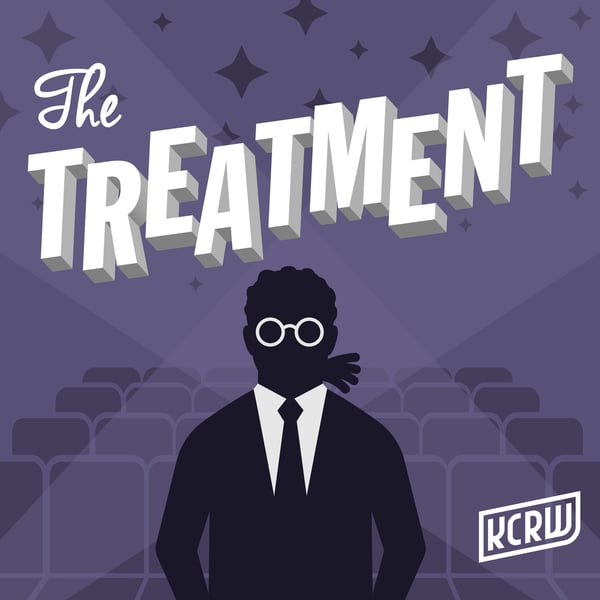‘The Beauty of Dusk,’ ‘Revive: Los Angeles’ and the Mike Leigh film that changed graphic novelist Adrian Tomine
The Treatment
KCRW
4.6 • 639 Ratings
🗓️ 9 July 2022
⏱️ 58 minutes
🧾️ Download transcript
Summary
This week on The Treatment, Elvis sits down with New York Times columnist Frank Bruni to discuss Bruni’s memoir, “The Beauty of Dusk: On Vision Lost and Found” and how he approaches writing. Next chef and restaurateur Neal Fraser tells about his immersive dinner-theater experience “Revive: Los Angeles” currently at the downtown LA event space Vibiana. And finally on The Treat, graphic novelist Adrian Tomine explains how Mike Leigh has helped his storytelling.
Transcript
Click on a timestamp to play from that location
| 0:00.0 | From KCRW Santa Monica and KCRW.com, it's The Treatment. |
| 0:14.3 | It's The Treatment. |
| 0:16.4 | I'm Elvis Mitchell. My guest, Frank Bruny, you may know from his books on his family and his life of food, the book is |
| 0:22.4 | born around, or one of my favorites ambling into history, a discourse on what made George W. Bush |
| 0:28.2 | electable. You may also know him as a former restaurant critic in New York Times. I think |
| 0:34.6 | him as being somebody who managed to have the best career you could have after |
| 0:38.5 | being a film critic at the Detroit Free Press. His new book is The Beauty of Dusk on Vision, Lost, and |
| 0:44.3 | Found. Frank Bruny, thank you so much for doing this. Thank you for having me. One of the things |
| 0:49.1 | I found so great about this book, and I was saying before we got started, connects to born around, is I guess |
| 0:55.7 | your appetite for information and how you process information and what being informed about what's |
| 1:00.5 | going on around you does for you. |
| 1:02.9 | Well, it was enormously helpful in this case because, as you know, the book is about a freak |
| 1:08.6 | medical thing that happened to me where I lost vision in one eye and |
| 1:12.2 | was told I might go blind. And as I processed that, getting more information about it, just kind of |
| 1:18.1 | slipping into journalist mode was really, really helpful. You got past the point where you thought |
| 1:23.1 | information was just going to be a panacea. And I could see your appetite for information, just increasing, just because you really wanted to know where you were and also get some sense of the way other people understood what was happening with you. |
| 1:39.3 | Well, yeah, I kind of instinctively started talking to people around me who'd been through tough stuff, you know, who dealt with medical issues, or just kind of instinctively started talking to people around me who'd been through tough stuff, |
| 1:45.9 | you know, who dealt with medical issues or just kind of major life hardship issues |
| 1:50.3 | because I thought if I'm going to figure out how to best cope with this, |
| 1:53.8 | there's no better strategy than to ask people who've coped with analogous things. |
| 1:57.7 | And in the process of doing that, not only did it give me an enormous number of tips |
| 2:03.2 | on kind of how to go on, how to put what had happened to me into perspective, how not to be, |
... |
Please login to see the full transcript.
Disclaimer: The podcast and artwork embedded on this page are from KCRW, and are the property of its owner and not affiliated with or endorsed by Tapesearch.
Generated transcripts are the property of KCRW and are distributed freely under the Fair Use doctrine. Transcripts generated by Tapesearch are not guaranteed to be accurate.
Copyright © Tapesearch 2025.

